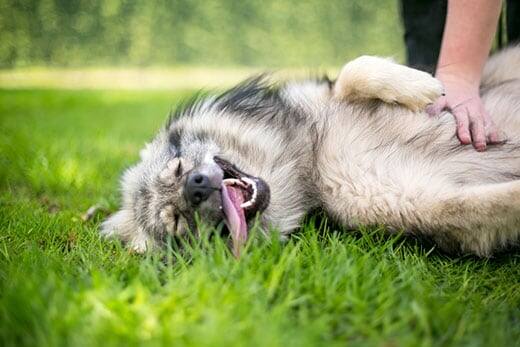
-
Find the right food for your pet
Take this quiz to see which food may be the best for your furry friend.
Find the right food for your pet
Take this quiz to see which food may be the best for your furry friend.
Featured products
 Adult 7+ No Corn, Wheat, Soy Chicken & Brown Rice Dog Food
Adult 7+ No Corn, Wheat, Soy Chicken & Brown Rice Dog FoodSupports energy level and beautiful coat in mature dogs
Shop Now Adult Perfect Weight & Joint Support Chicken Recipe Dry Dog Food
Adult Perfect Weight & Joint Support Chicken Recipe Dry Dog FoodThis weight management and mobility support dog food was created with Hill’s unique understanding of the biology of overweight dogs.
Shop Now Adult 7+ Perfect Digestion Chicken, Whole Oats & Brown Rice Recipe Dog Food
Adult 7+ Perfect Digestion Chicken, Whole Oats & Brown Rice Recipe Dog FoodScience Diet's breakthrough nutrition supports ultimate digestive well-being & healthy microbiome for dogs age 7+
Shop NowFeatured products
 Perfect Weight Salmon & Vegetable Canned Cat Food
Perfect Weight Salmon & Vegetable Canned Cat FoodOver 70% of cats lost weight within 10 weeks when fed this nutrition
Shop Now Adult Perfect Digestion Chicken, Barley & Whole Oats Recipe Cat Food
Adult Perfect Digestion Chicken, Barley & Whole Oats Recipe Cat FoodScience Diet's breakthrough nutrition supports ultimate digestive well-being & healthy microbiome
Shop Now Adult Savory Chicken Entrée Cat Food
Adult Savory Chicken Entrée Cat FoodPrecisely balanced nutrition with the delicious taste of savory minced chicken to help fuel the energy needs of cats during the prime of their life
Shop Now -
Dog
- Dog Tips & Articles
-
Health Category
- Weight
- Food & Environmental Sensitivities
- Urinary
- Digestive
- Joint
- Kidney
-
Life Stage
- Puppy Nutrition
- Adult Nutrition
- Senior Nutrition
Cat
- Cat Tips & Articles
-
Health Category
- Weight
- Skin & Food Sensitivities
- Urinary
- Digestive
- Kidney
-
Life Stage
- Kitten Nutrition
- Adult Nutrition
Featured articles
 Water
WaterDiscover why water is the most important nutrient for your dog or cat to live a healthy life. Find out how much water your pet should consume each day.
Read More Pet Food Storage Tips
Pet Food Storage TipsDiscover how and where to store your dry, as well as canned, dog and cat food. Learn how to find the "best before" dates on all Hill's pet food packaging.
Read More The Incredible Science Behind Your Pet's Microbiome
The Incredible Science Behind Your Pet's MicrobiomeLearn what a pet's microbiome is, how it contributes to your pet's gut & overall health, and why nutrition is important in maintaining healthy microbiomes.
Read More -
Find the right food for your pet
Find the right food for your pet


When a dog rolls over and reveals their belly to you, you can't help but feel special — and, of course, give them a good scratch. But why do dogs like belly rubs? And if your dog doesn't roll over for you, does that mean your pet doesn't like you? Let's take a look at the science behind a dog belly rub.
Why Do Dogs Like Belly Rubs?
It's important to first understand why dogs show us their bellies at all. When a dog lies on their back with their belly and neck exposed and tail tucked between their legs, they're communicating to show you they trust you. They're putting themselves in a vulnerable position, exposing very sensitive parts of themselves and trusting that you won't take advantage of that.
Many pet parents interpret their dog rolling onto their back as an invitation for a belly rub. And for some dogs, that's exactly what it means. After all, getting a rubdown feels good! When you pet your dog, they release endorphins, the feel-good hormone, and their levels of oxytocin, the bonding hormone, go up, says Wag!. And, similar to a scalp massage for you, petting your dog provides them with positive hair follicle stimulation, says ZME Science. For a dog to get those good feelings from a person they completely trust — well, what more could a four-legged friend want?



Tasty Tips
What If My Dog Doesn't Like Belly Rubs?
But not all dogs are actually hoping for a dog belly rub when they roll onto their backs. Some dogs, depending on their past experiences, temperament and breed, may not expose their bellies to you at all. According to the Deccan Chronicle, the majority of dogs might not even enjoy belly rubs; they might simply be indulging their pet parents because it makes us happy.
Just like people, every dog has their own preferences when it comes to how they receive love and affection. So, if your dog doesn't like belly rubs, don't worry — it doesn't mean they don't love and trust you just as much as a pup who can't get enough tummy strokes.
Maybe giving and getting belly rubs is a favorite pastime for you and your pet. Or, maybe your pup prefers to spend time cuddling, running together, playing with toys or engaging in other activities with you. What matters most to your dog is that they get to be by your side. Take some time to explore your pet's interests, then build your bond by doing those things together — whether they involve belly rubs or not.


Erin Ollila believes in the power of words and how a message can inform—and even transform—its intended audience. Her writing can be found all over the internet and in print, and includes interviews, ghostwriting, blog posts, and creative nonfiction. Erin is a geek for SEO and all things social media. She graduated from Fairfield University with an M.F.A. in Creative Writing. Reach out to her on Twitter @ReinventingErin or learn more about her at http://erinollila.com.
Related products

This weight management and mobility support dog food was created with Hill’s unique understanding of the biology of overweight dogs.

Science Diet's breakthrough nutrition supports ultimate digestive well-being & healthy microbiome for dogs age 7+

Supports energy level and beautiful coat in mature dogs

Delicious braised beef paired with tender vegetables in a succulent stew
Related articles

Understand the role that Omega-6 and Omega-3 fatty acids play in your dog's overall health, and how you can ensure they are getting enough.

Large and giant breed puppies have different nutritional needs than other dogs. Learn how to provide the special care they need to grow up big and strong.

Proper nutrition for your pregnant or nursing dog is vital to her and her puppy's health. Learn what you should do provide her with the proper nutrients.

Learn about Hill's puppy food and the nutritional benefit & high quality ingredients that it contains for your pup.

Put your dog on a diet without them knowing
Our low calorie formula helps you control your dog's weight. It's packed with high-quality protein for building lean muscles, and made with purposeful ingredients for a flavorful, nutritious meal. Clinically proven antioxidants, Vitamin C+E, help promote a healthy immune system.
Put your dog on a diet without them knowing
Our low calorie formula helps you control your dog's weight. It's packed with high-quality protein for building lean muscles, and made with purposeful ingredients for a flavorful, nutritious meal. Clinically proven antioxidants, Vitamin C+E, help promote a healthy immune system.

